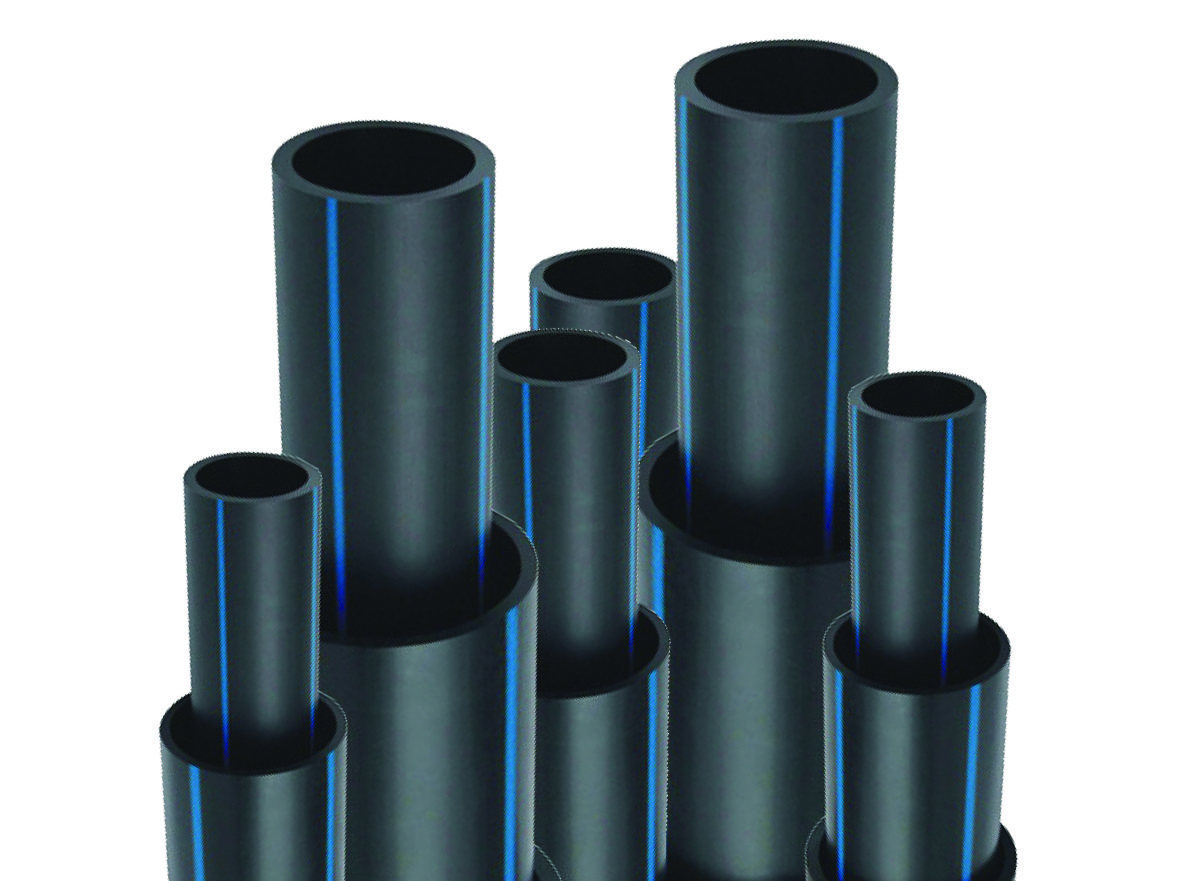The Reliability of Choosing Pipe Supplier American Plastics Midland
Wiki Article
Comprehending the Trick Perks of HDPE Pipe for Water and Wastewater Management
Using HDPE pipe in water and wastewater monitoring provides many advantages that merit factor to consider. Its extraordinary durability and long life expectancy make it a recommended selection for lots of tasks. Furthermore, the product's resistance to deterioration and chemical damage enhances its integrity in numerous atmospheres. The advantages prolong past simply durability and resistance. American Plastics HDPE Pipe Manufacturing. Exploring its cost-effectiveness and ecological influence discloses a lot more engaging reasons for its widespread fostering in contemporary infrastructureOutstanding Toughness and Durability

HDPE pipe stands apart for its phenomenal resilience and durability, making it a favored option in water monitoring systems. Constructed from high-density polyethylene, these pipelines can stand up to substantial stress and anxiety, making certain trusted efficiency gradually. Their durable nature enables them to endure extreme ecological problems, consisting of temperature level changes and soil motions, which can trigger other products to stop working.
The life-span of HDPE pipelines usually goes beyond half a century, providing a cost-effective remedy for communities and sectors alike. In addition, the material's lightweight buildings streamline installation, lowering labor prices and timeframes. This durability lessens the demand for regular repair work or replacements, additionally boosting its financial allure.
In water monitoring applications, the dependability of HDPE pipelines indicates fewer disruptions and enhanced service connection, making them essential to sustainable framework development. The combination of toughness and longevity strengthens HDPE's duty as a foundation in reliable water monitoring options.

Resistance to Deterioration and Chemical Damages
While several materials succumb to rust and chemical damages gradually, HDPE pipelines show exceptional resistance, making them excellent for different water monitoring applications. This durability stems from the molecular framework of high-density polyethylene, which is naturally non-reactive and does not wear away like steels or deteriorate from direct exposure to extreme chemicals. Consequently, HDPE is extremely effective in atmospheres with aggressive materials, such as wastewater systems that may contain acids, bases, and organic solvents.
Furthermore, HDPE pipelines can stand up to ecological elements such as soil level of acidity and saline problems, further improving their viability for diverse applications (hdpe pipe suppliers Midland TX). Their capacity to maintain architectural integrity in time decreases the danger of leakages and failures, which is important in making sure the security and reliability of water distribution and wastewater monitoring systems. Subsequently, the resistance to deterioration and chemical damages substantially adds to the overall effectiveness and longevity of HDPE piping remedies
Cost-Effectiveness and Financial Advantages
When considering the monetary effects of water administration systems, the cost-effectiveness of HDPE pipes becomes evident. These pipelines provide reduced installment and maintenance expenses compared to conventional products like metal or concrete. Their light-weight nature simplifies transport and installation, leading to decreased labor expenditures. Furthermore, HDPE pipelines exhibit a lengthy lifespan, usually surpassing half a century, which converts to fewer substitutes and lasting cost savings.Furthermore, the resistance of HDPE to rust and chemical damages minimizes the demand for expensive fixings and replacements. The pipes likewise sustain efficient water flow, reducing energy costs associated with pumping systems. By minimizing leaks and water loss, HDPE pipes add to considerable financial benefits for communities and sectors alike. Generally, the first investment in HDPE piping can produce considerable monetary returns over the life-span of the water monitoring system, making it a sensible selection for sustainable infrastructure growth.
Environmental Sustainability and Reduced Effect

Versatility and Adaptability in Installation
Due to their distinct properties, HDPE pipelines provide exceptional adaptability and versatility in setup, making them appropriate for a wide variety of applications. Their light-weight nature enables less complicated handling and transport, minimizing labor costs and installment time. HDPE pipes can be curved and shaped to fit different surfaces and task demands, which is particularly helpful in testing settings.Additionally, their resistance to rust and chemical damage permits for installation in diverse setups without the need for specialized safety coverings. The capacity to fuse joints creates a continuous, leak-free system, enhancing the general integrity and reliability of the installment. HDPE's versatility also accommodates ground motion, minimizing the danger of damage in areas prone to moving soil. Overall, these characteristics make HDPE pipes not just versatile but also a preferred option for water and wastewater monitoring systems.
Frequently Asked Questions
Exactly How Does HDPE Pipe Compare to PVC in Water Management Applications?
HDPE pipe offers exceptional flexibility, resistance to corrosion, and sturdiness contrasted to PVC. Its lighter weight assists in less complicated installation, while its lengthy life-span lowers substitute costs, making HDPE a favored choice in water management applications.What Is the Life Expectancy of HDPE Pipeline Under Regular Conditions?
Under typical problems, HDPE pipelines can have a life-span varying from 50 to 100 years. Their resilience and resistance to deterioration add to their long-lasting efficiency in numerous applications, making them a reliable choice for infrastructure.Are HDPE Pipeline Recyclable After Their Service Life?
Yes, HDPE pipes are recyclable after their life span. custom hdpe pipe manufacturing Midland TX. They can be processed and repurposed into new products, greatly decreasing ecological influence and promoting sustainability within the market, making them a green option for piping optionsWhat Is the Installation Refine for HDPE Pipeline?
The installment procedure for HDPE pipes entails site prep work, trenching, pipeline blend or mechanical joining, backfilling, and pressure testing. Correct techniques guarantee a durable and reliable system for transferring water and wastewater successfully.Can HDPE Pipes Be Used for Both Safe And Clean and Non-Potable Water Systems?
Yes, HDPE pipes can be used for both safe and clean and non-potable water supply. Their versatility, durability, and resistance to rust make them suitable for various applications, ensuring risk-free and efficient transport of water in different contexts.Report this wiki page